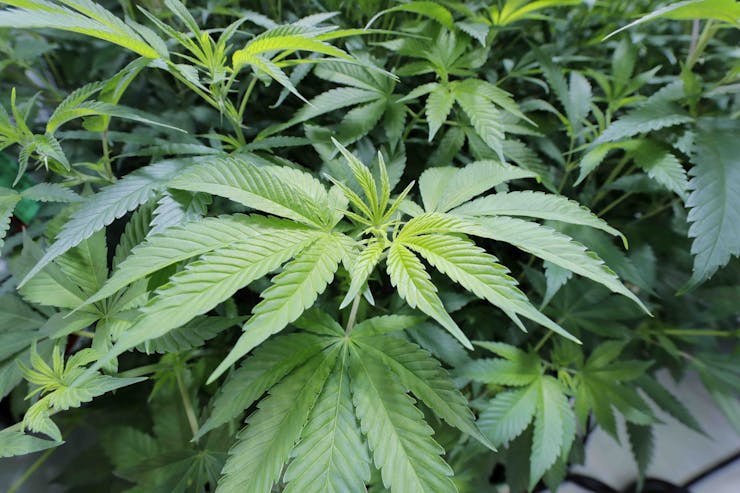In a study published earlier this month, researchers help dispel the idea of cannabis as a gateway drug—a substance that leads to the use of other harder drugs. It shows that when a state legalizes weed, it does not lead to adults using other substances, nor an increase in substance abuse, either with cannabis or other substances. In fact, the study found that legalization may lead to a decrease in alcohol-related problems.
The theory of cannabis as a gateway drug came about in the 1970s, wrapped up in the messaging of the War on Drugs, a campaign that ostensibly tries to curb drug usage in the US, but ultimately targets people of color for mass incarceration (and still does today).
The theory suggests that cannabis and alcohol are “soft” drugs that are easy to get—especially for teens—and that doing them will lead to hard drugs, such as cocaine, heroin, and others, as well as addiction.
Prohibitionists have long touted cannabis as a gateway drug in order to block legalization efforts across the country. This study helps to debunk the false narrative on weed, and gives weight to the pro-legalization movement.
“We really didn’t find any support for a lot of the harms people worry about with legalization,” said lead author Stephanie Zellers in a press release. “From a public health perspective, these results are reassuring.”
What does the study say?
Pulling data from two decades-long studies at The University of Colorado and The University of Minnesota, the study looked at over 4,000 twins—40% in a state with legal recreational weed (Colorado) and 60% in a state without legal cannabis (Minnesota). The use of twins in the study “controls for a wide range of variables, including age, social background, early home life, and even genetic inheritance,” said author John Hewitt.
Subjects were studied at two different points: before 2014, when Colorado first opened dispensaries, and after. It measured for alcohol, tobacco, cannabis, and illicit substance usage, as well as mental health.
“For low-level cannabis use, which was the majority of users, in adults, legalization does not appear to increase the risk of substance use disorders,” said co-author Dr. Christian Hopfer. This was the case for both cannabis and other substances.
The study also found no connection between legalization and cognitive, psychological, social, relationship or financial problems in individuals.
It went on to say that prevention and intervention of cannabis abuse would be best targeted on risk factors, such as family history, mental health disorders, etc., rather than the availability of cannabis.
It’s important to note that the study was limited in some capacities in that it only focuses on individuals in Minnesota and Colorado, and that 92% of participants were white. Additionally, subjects were “characterized by low levels of substance use and psychosocial dysfunction,” according to the study.
Why this study is important
Although the idea of cannabis as a gateway drug is becoming more of a relic, continuing to dispel the idea can lead to more states legalizing cannabis for recreational use, and eventually, the federal government.
With legalization comes regulation and product testing, an essential step to ensure that consumers know what’s in their cannabis products, something that doesn’t happen with illicit market products. Legalization will also lead to more research on the plant to more fully understand its benefits and effects.
The study authors note that although legalization does not lead to substance abuse disorders, either with cannabis or another substance, more research is needed on the plant, in particular, on THC potency, dosage, and consumption patterns.





